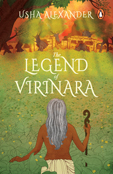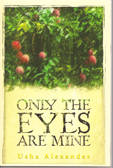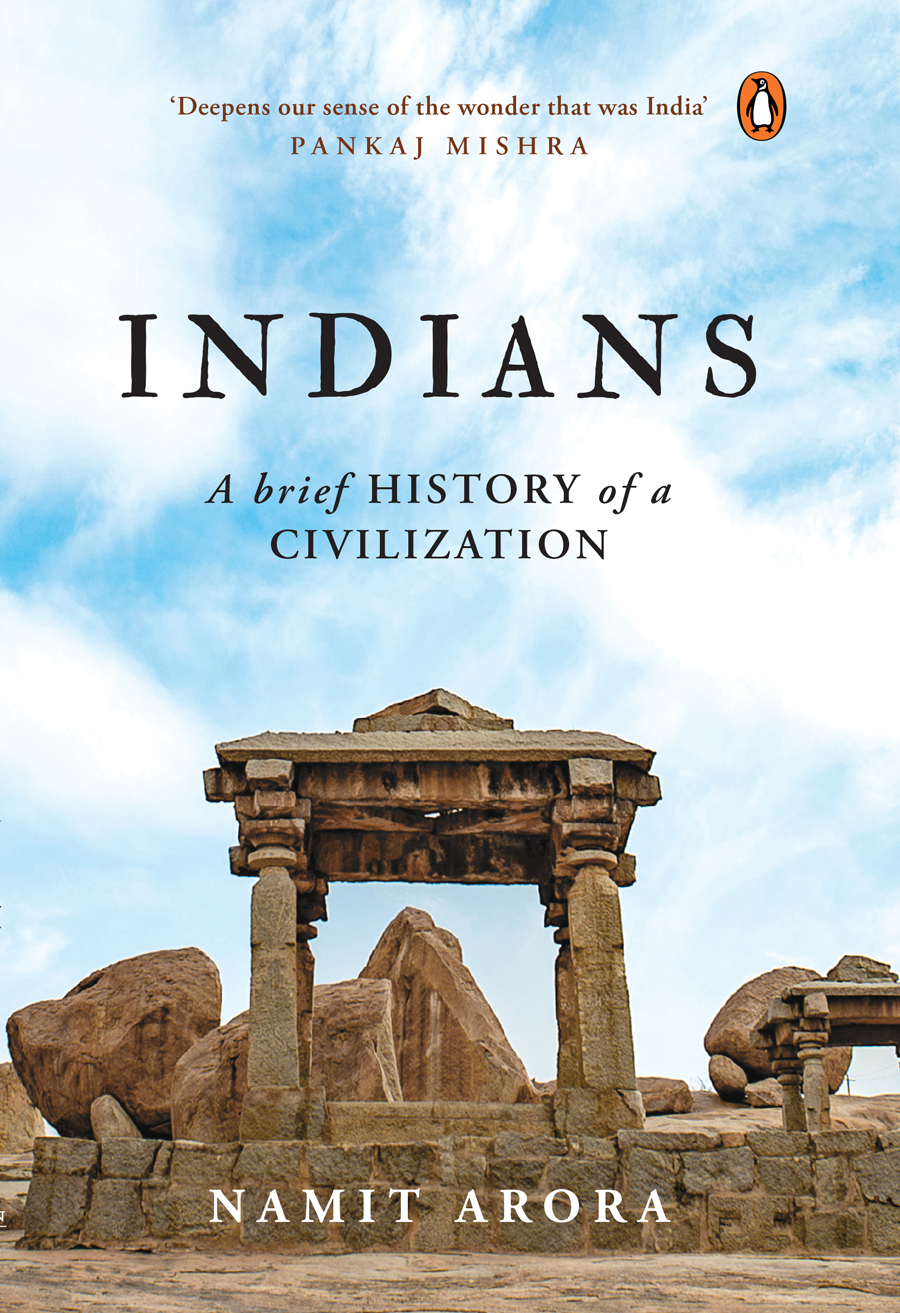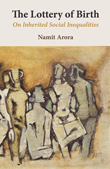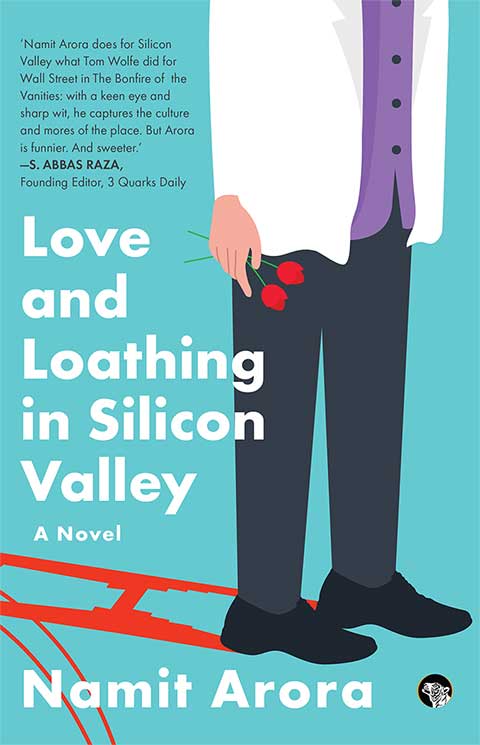| Index of articles from the Blog |
| Animals |
| Anthropology & Archaeology |
| Art & Cinema |
| Biography |
| Books & Authors |
| Culture |
| Economics |
| Environment |
| Fiction & Poetry |
| History |
| Humor |
| Justice |
| Philosophy |
| Photography |
| Politics |
| Religion |
| Science |
| Travel |
Books by
Books by
|
By Usha Alexander | Sep 2019 | Comments
|
(This essay first appeared in White Wall Review.)
My grandmother, whom I called Avva, remained at home with her own parents after her wedding rites, but she was immediately subject to the dictates of her in-laws, who plainly intended to enforce her subservience: Avva was removed from school, where she attended the third standard. She was denied her violin, which she loved learning to play. She was forbidden to wear black, her favorite color, because her husband didn’t like it. Before she even knew him, Avva’s horizons were darkened by her husband’s shadow, which would follow her for the rest of her life. When I came into Avva’s life, Grandfather was recently departed, but his shadow had grown heavier with the years. Its twilight stretched across miles and decades, from his roots in that mud-lane village of late Colonial India, where he was born, to the sagebrush hillsides of the late-century American Mountain West, where I grew up in Idaho. The three adults of our household—Avva, my father (her son), and my mother—all seemed breathless under the weight of it. It dripped from their tongues, as they spoke of him in tones of mesmeric awe. When I was nine, my family made an extended visit to India. Avva wanted us to know something of her country, and she took us along to a string of museums and ancient ruins across the subcontinent. Whenever Avva mentioned Grandfather’s name to the local site directors, they too would hush reverentially, in memoriam, before taking us aside on private tours of the exhibits. During his life, Grandfather had been the Director of Archaeology for Andhra Pradesh, a scholar of ancient texts, and a professor of comparative religion. Even before I understood any of that, I had internalized that he was built of the sturdiest moral fiber, that he was the most intelligent, most well read, most erudite person anyone had ever heard of—and all of this in at least three more languages than I could claim: Sanskrit, Telugu, and Tamil. Grandfather had died six months before I was born, so part of his name was made a part of mine, and as a child I carried it as a burden of expectations that I could never fulfill. But perhaps it heightened my attention to family stories. I searched even harder for the luminosity in Grandfather’s shadow, which seemed to bedazzle those who’d known him. Though I couldn’t have articulated it then, I had noticed that in all the talk of his greatness, there was never spoken a tender word about him: not a single story of his kindness, nor a shared moment of fun, good humor, or warmth. And as I grew up, I learned to hear echoes of other stories in the omissions and partial truths that surrounded his name. It was only towards the end of her life that Avva occasionally began to offer more straightforward reminiscences about Grandfather and others in her extended family. Her disclosures were still guarded—if any word ever rose to the level of complaint, it was patched over with praise or rationalization. Yet through fragmented memories and tender regrets, she revealed some missing facets of Grandfather’s legacy. From those hesitant details, it became clear that the shadow Grandfather cast was not primarily of his greatness, but of the abuse he had dealt against his wife and child, damaging his son, who also grew into an abusive husband and father. This in turn impacted my own life and relationships. Even as I heard the stories of Grandfather’s abuse, I also began to see that our family wasn’t unusual in this damage: the rugged landscapes of buried tragedy over which we trod daily; the erasures and denials we imbibed with our rice and chapatis; the cloying ancestral shadows that hung over us—these are the specters that haunt many Indian families I’ve known. They’re not identical in every family, but open the closets, pull out the heirlooms and family albums, travel back to the villages or small towns, and you will likely find them in some form. Of course, this isn’t entirely unique to Indian families. No culture has a monopoly on family dysfunction and drama. But the more I observed and learned, the more it seemed to me that Indian families are rife with a particular kind of trouble, rooted in layers of secrets, repressed rage, crushed dreams, thwarted personalities, stifled hearts and minds. The explanation lies, perhaps, in the distinctive foundations of the Indian social system itself: the feudal-patriarchal structure of the “traditional” Indian family, modulated by the strictures of caste and religion. Over decades I’ve begun to see its convoluted rules and inner logic. * Even today, most Indians have a grandparent, if not a parent, who was shaped by the family structure and social dynamics of village India. These families are regimented into overlapping hierarchies based on generation, birth order, sex, marital status, physical beauty, financial standing or earning potential, and other such external signs. Often, these are patrilineal joint families, in which brothers and their wives and children share a home, while their sisters are surrendered at marriage to become the property of their respective husbands’ families. Individuals are expected and conditioned to fulfill the duties of the station they inhabit, regardless of their own inclinations, in service to the family unit. Power asserts itself from the top to the bottom of the hierarchy, and children are reared to be ever mindful of their position and duties within it. In this system, self-knowledge and individual development are discouraged because they ultimately work against one’s submission to their given role. Naturally, few individuals are ideally suited to the position they are assigned, not least because each role is highly circumscribed and thus unable to accommodate a whole and complex person. In cases where the misalignment is extreme, the entire family dynamic warps around the brokenness of its most problematic members. Often this manifests as general pettiness within family relationships, attempts by some to psychologically or physically dominate others, or acts of violence and cruelty meted out against the least powerful members of the household. It can breed an environment of seething anger, distrust, competition, jealousy, and vengefulness, with consequences that extend into future generations. For outsiders, this can be tricky to detect, for, despite their troubles, most Indian families are fiercely invested in projecting a sanitized image of themselves to the world, that of a perfect happy family. I’m not the first to notice this. Indian literature teems with portraits of family drama revolving around these very power dynamics, beginning with the absurd cruelties of The Mahabharata itself. That ancient Indian epic is an account of just such a family, their jealousies and power struggles across generations, as parents coerce, dominate, and otherwise manipulate their children, younger siblings, servants, and each other. Each character tries to circumvent their restrictions or twist whatever power or knowledge they do have to increase their own advantage, whether by brute force, outlandish self-sacrifice, or conniving. Take Princess Amba, furious at being forced to marry Prince Bhishma even though she loved another man. She found power only through her fury, reducing her to a demon-like existence. Consider Queen Gandhari, whose devoted submission to her blind husband inspires her to give up her own eyesight; it’s a pathological act of self-sacrifice that wins her a degree of respect and authority nearly equal to her king’s. The entire epic centers on a group of men who engage in the greatest war of history against their own cousins, fueled by their rage against the imposed hierarchies of power. The coercion, violence, and manipulation, the ruination of dreams and potentials are portrayed as quite acceptable, even glorified, divinely sanctioned, or otherwise excused. Of course, The Mahabharata is a very ancient and multilayered story that takes place in the social context of a distant and different time. However, fundamentally similar values, structures, and pressures continue to animate stories of a more familiar India, as observed by modern writers. Less than a century ago, Ismat Chughtai wrote bracingly of how those unbending traditional hierarchies and expectations warp families and individuals. Chughtai, born within a year of my own grandfather, on the other side of India, managed to escape the common fate of child-marriage and was able to pursue an education and a literary career in her native Urdu. Borrowing from life to write frankly about the feudal-patriarchal society around her, she documented its violence and its wastage of lives, making her a controversial figure in her day. Chughtai’s novella, A Heart Breaks Free (1966), encapsulates the broad and varied emotional landscape of those traditional family structures by describing the power games pursued by the women of a wealthy, village household, who are retained in illiteracy and confined to the courtyard of their home. Their various ways of coping with or adapting to their situation, from bullying to submitting to finding an escape in madness, without ever questioning the vicious system of which they become the very instruments, deftly captures the psychological intricacies that shaped the lives and minds of generations of women and men. Chughtai’s stories are also notable for the way her female protagonists sometimes morally best those who hurt them, a twisted kind of triumph within their constrained circumstances. Though the idea of educating women is now more widely accepted and women are becoming less cloistered, the basic structure of the patriarchal Indian family unit, along with its attendant pathologies, has to a large degree persisted, to some degree adjusting its forms, sometimes even crossing the oceans with the diaspora, as described in V.S. Naipaul’s A House for Mr. Biswas (1961). Set in Trinidad in the early twentieth century, this story follows the tribulations of an impoverished yet ambitious cane-cutter’s son, who marries a woman from a wealthier family. Lacking any house of his own, the young man has no option but to take up residence within his wife’s paternal joint family. In this poignant telling, Mrs. Biswas never rises beyond being a pawn of her husband or her natal family, and a caretaker to her children. Meanwhile, Mr. Biswas, whose presence within his wife’s clan constitutes an inversion of the usual practice, remains of low status. He suffers regular humiliations, bent by the pettiness, squalor, and brutalities of the extended household. His life becomes defined by his struggle to retain his dignity and pursue his own ambitions. His dearest dream is to escape the daily indignities by acquiring the titular house of his own. His son, who eventually escapes even further, to England, later looks back on his father’s life with pity; he recognizes that his father’s struggle was heroic, pathetic and limited though it was, shaped by such ruinous factors. The ripples of these forces carry forward even into our own time, with the difference that in contemporary urban stories, families seek to hide the violence, bury the grief, and deny their injuries—or at least, their culpability. Consider Sandeep Roy’s Don’t Let Him Know (2016), a thoroughly modern story of a family quietly riven by the old expectations of family and society, which continue to exert a powerful force on the psychology of individuals, though in many ways their own lives have moved beyond the outward feudal structures. Roy tenderly sketches the silent emotional depredations visited upon the wife and son of a Kolkata patriarch who’s been secretly in love with another boy since his youth. Unable to be his most authentic self within his prescribed family, arranged by his parents with attention to those feudal-patriarchal values, he responds by shutting down his emotional life. His escape is to disappear entirely into his given role as patriarch and provider, becoming a mask of a man within his household. As a mild but uninvolved father and husband, he remains unaware of how this amounts to an abandonment of his wife and child. The storytelling centers sensitively upon his wife, who also maintains her role as the nurturing companion and mother, ever abstemious and self-effacing, even as her frustration and loneliness also cause her to turn inward. Meanwhile, their son grows up between the losses and lacunae of his parents’ hidden selves. Years later, as an adult in the United States, he finds himself estranged from his parents in a way that cannot be overcome even by his love for them. These stories and others like them stretch across a psychological and emotional landscape that feels familiar to me from a lifetime of conversation and observation among Indian families. Though none of these is the story of my own family, in their fault lines, fractures, and trail of human devastation they resound with similar generational secrets, repressed longings, forbidden loves, stolen lives, and stifled potentials—observed again and again in Indian family sagas. * Soon after my grandparents’ wedding, though he was astonishingly young for the task, Grandfather left for England to earn a doctoral degree in History. When he returned to his parents’ home in India, around twenty years of age, he wrote to inform his young wife about his English girlfriend, who would also soon arrive to live with them. It was the early 1930s and he was now a man of stature hailing from a “good family;” others were doing it and, surely, he was also entitled to an appropriately educated life-companion. Grandfather’s family was scandalized by his plan. Arguments erupted between him and his parents—while Avva quietly awaited the outcome—until he relented. I don’t doubt his family’s reaction had little to do with any serious concern over his marital infidelities but more to do with their own unwillingness to accept the pollution of a casteless person into their family arrangements. No story survives about who that English woman was or what became of her afterwards. Several years later, after Avva had passed menarche, she was delivered to her husband’s family, where she cooked and cleaned. She exchanged letters with her parents and seven younger siblings, whom she missed terribly, surrendering all correspondence first to her mother-in-law to be read and approved. She was sixteen when my father was born, and was lucky to have had a son in a world where only sons were prized. But Avva wished for a daughter; it was a desire she would transfer onto me, when I arrived thirty years later, for she was never pregnant again. Only decades later did she learn that Grandfather had secretly undergone a vasectomy. He’d felt no desire for any children beyond the obligatory son and wanted to retain his sexual freedom. Yet Grandfather’s attempts at personal rebellion, at staking out choices for himself, became a weapon aimed against Avva’s life, for as a woman, wife, daughter-in-law, youth, unpaid cook and servant, she had fewer choices. Grandfather never stopped lashing out against the family life that had been constructed for him. Unlike Roy’s hollowed patriarch in Kolkata, however, Grandfather’s tactics were flagrant and cruel. He seduced his students and colleagues whenever he could. Sometimes, when a woman visited their home, he would send Avva to prepare tea while he made his advances; by the time Avva returned, he and his guest would be unabashedly engaged in sexual congress. “But what did you do?” I asked her, stunned and horrified. “I put down the tea tray on the floor and went out of the room,” Avva told me, as though there was no other possible response. Grandfather, I learned, never demonstrated any affection toward his child. He never touched my father but to strike him or hold him by the ankles and dunk his head into the household water tanks. Confronted with this memory, my father seemed only vaguely or theoretically aware that what he’d suffered counted as child abuse. To his credit, my father recognized the escalation of his own physically abusive tendencies; after episodes involving forcefully throwing or dropping his own children, when I was about eight, he swore off ever laying his hands on us again. But the energy of his rages continued to find an able instrument in his tongue. On occasion, when he felt guilty about his verbal abuses, he teased us, “You have such a nice father. Your father is nicer than mine was.” I suspect that Grandfather had no idea that he was angry. Or why. As with my father, selfish and enraged was merely a way of being, an entitlement to bouts of madness and cruelty handed down from father to son. But it’s not difficult to understand why he was angry. I don’t know what abuses Grandfather suffered at the hands of his own elders but—not unlike the cloistered women of Chughtai’s feudal villages—clearly, he felt trapped in the life that was foisted upon him, even while he subscribed to its values, strictures, and demands. Though Grandfather inhabited a privileged position within the family arrangement, it strangled him too. Meanwhile, the constraints of her role and the abuse she suffered positively flattened my grandmother. Though she was always loving and nurturing towards me and my two siblings, she seemed emptied of any capacity to dream or desire anything for herself. In the years after Grandfather died, she was encouraged to build a life beyond our home: she learned to drive, joined a knitting club, and took classes to learn English. But she very soon stopped driving and even knitting. She never asked for, and never received, anything of her own: no occupation, no special amusements, no friends or outside interests. She spent her remaining decades raising her grandchildren: cooking, cleaning, comforting, until she got sick. Then—in what became the final year of her life—my family shattered into pieces around her. My parents divorced and my siblings and I escaped to other cities for work or school. The hurt and stress of our family’s disintegration, her fear of having no place to belong, if nothing was left of us, aggravated Avva’s illness, a rare ulcerative condition known as Zollinger-Ellison syndrome. Very weak and completely dependent, she was terrified: what if her son’s new wife turned her out? She began to bleed more often, requiring more hospital visits, making her feel a burden, more insecure and afraid. Even then, she suffered quietly and asked for nothing. I’ve never ceased wondering who Avva might have been, had she felt she deserved to be anybody; I still weep when I recall her guarded sorrows and her loneliness. I don’t believe this is an unusual story. It’s plain that the inheritance of rage, learned helplessness, and grief from similar sorts of trauma aren’t confined to my own direct lineage. Within Avva’s extended family, two of her uncles had been opium addicts and two of her young nieces had committed suicide, while other cases of substance abuse, mental torture, and attempted suicide are also attested within the clan. There’s more of the same in other families I’ve known. This is to say nothing of everyday cruelties, children or siblings who irrevocably break off contact with their families, and other silent tragedies. The kinds of struggles and sorrows and secrets I discovered in my own family only surface—if they ever do—after someone dares to look into the past with a new awareness, perhaps decades after leaving India. Of course, as India continues to change, Indian families, too, are changing. Many Indians decry these changes, sentimentalizing “traditional” families in a sepia fog. And yet individuals continue to push against the limits imposed upon their own lives, even when they seek to bind up others in “tradition.” Just as the stories tell us they’ve always done. Just as Grandfather did. Just as my father tried to do. But the old structures and even the psychology of Indian feudalism and patriarchy are finally cracking under this era of global capitalism and modernity. No doubt the new system comes with its own pathologies, but my hope is that as the old order breaks down, we’ll find a space to be more reflective and build stronger selves and more humane families. The last time I saw my grandmother, she was in a hospital bed, suffering another reversal in her advancing disease. My sister and I had returned home from college to see her. Though this was only another in a series of hospital stays during the latest months of her life, we somehow intuited that this might be the last. Standing at Avva’s bedside, we fumbled over how to speak of what was in the room beside us. We told her that we were doing well and were going to be fine. My sister and I felt that we needed to reassure Avva that she needn’t worry about us; we wanted her to feel that she could let us go and release the pain she was living with, if that’s what she wished to do. We promised her we’d look after each other. We told her we loved her. I remember the awkwardness of the moment, the sticky, raw sincerity. I remember wondering if she believed our assurances of wellbeing, or if we even quite believed them ourselves. Avva didn’t answer us, except to vaguely nod her head; or maybe she wasn’t nodding. She passed away in her sleep a few hours later that night. Of course, my grandmother’s life, like every life, contained some share of joy, too. All of us who knew her recognized her as a generously loving soul, a gifted and creative cook, and a woman much more worldly and understanding than one might expect from her limited education and exposure. I realize now, too, that though it did take her decades to unwind herself and tell fragments of her story, she finally allowed herself to be known and valued as she was, one who never was able to strive for wholeness. Not everyone manages this. Despite her blameless life and tenderness as a caretaker, I don’t think she ever achieved the sense of moral victory that Chughtai’s characters sometimes did. But while she suffered, she was mightily loved. I must believe she knew this. |
Designed in collaboration with Vitalect, Inc. All rights reserved. |
|


